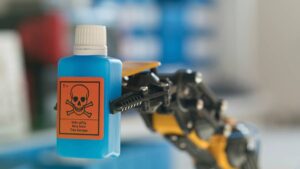You’ll probably need just 300 seconds to fully charge an EV by 2021, BP says

Pic: Morsa Images / DigitalVision via Getty Images
Oil giant BP is investing in tech that will fully charge an electric vehicle in five minutes by 2021, according to BloombergNEF.
BP is currently spending $200m a year on new ventures “largely in the low-carbon space”, says David Eyton, head of technology at BP.
Last year, BP bought UK company Chargemaster for $US170 million and invested about $US20m in Israeli battery startup, StoreDot.
It’s part of a wider move by oil heavyweights into early investments in EV-facing infrastructure and tech.
Shell, for example, purchased German battery company Sonnen earlier this year for an undisclosed amount. In Germany, Shell is also installing 50 high-performance charging stations with a total of 100 charging points at its filling stations.
In 2016, France’s Total SA surprised investors with the $1.6 billion acquisition of battery maker Saft Groupe SA and in 2018, it bought smart charging startup G2Mobility.
And Caltex Australia is apparently in talks with potential partners “for an EV charging station trial”.
- Subscribe to our daily newsletter
- Join our small cap Facebook group
- Follow us on Facebook or Twitter
BP Chargemaster is in the process of installing ultra-fast EV chargers at service stations in China, Germany and the UK, Eyton says.
But the key focus for Chargemaster right now is on how to deliver power faster, rather than necessarily expanding the network.
“The constraint on how quickly charge points are rolled out is dependent upon how many electric cars there are,” Eyton says.
“We need to pace the rollout of charge points ahead of demand, to give people the confidence to move to electric transport.”
In China, the company has installed its first service station with 16 60-kilowatt chargers – with very high usage rates approaching 50 per cent, Eyton told BNEF.
“We’ve also put in ultra-fast chargers in the first five stations in Germany and we’re rolling them out in the UK at around 150kW each in capacity.
“These ultra-fast chargers mean users can get an extra 100km of travel after 5 minutes of charging.”
Longer-term, BP wants to charge an entire car in less than five minutes.
#BP & @StoreDotLtd present world-first full charge of an electric scooter in 5 minutes, a major milestone for ultra-fast charging battery technology: https://t.co/ZloMun9bao pic.twitter.com/su2yvNbSkf
— BP (@BP_plc) June 12, 2019
That’s not far short of filling up with petrol.
“That technology isn’t commercially available yet, but we’ve invested in a company called StoreDot in Israel that we think has the best shot at making a new battery that will charge really fast – it’s a modified lithium-ion battery,” Eyton says.
“Today, they are making batteries for phones that allow people to charge phones in a couple of minutes.
“Our aim is to have a battery in a car by 2021 that can be charged completely in five minutes – for a lot more than 100km.”
NOW READ: High Voltage — EU electric vehicle penetration is about to take off big time
UNLOCK INSIGHTS
Discover the untold stories of emerging ASX stocks.
Daily news and expert analysis, it's free to subscribe.
By proceeding, you confirm you understand that we handle personal information in accordance with our Privacy Policy.








